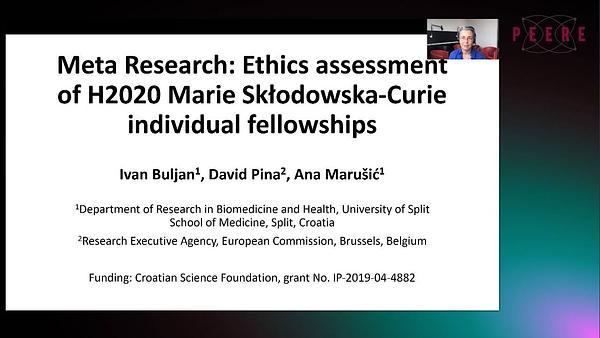Would you like to see your presentation here, made available to a global audience of researchers?
Add your own presentation or have us affordably record your next conference.
keywords:
ethics and ethical concerns
editorial policies
editorial and peer review process
Objective Journals are obligated to ensure published
research is conducted ethically, with this task often falling to
editorial staff. However, editorial staff are rarely trained in
research ethics.
Design Genetics in Medicine (GIM) staff and editors
developed a flowchart as a tool to categorize research studies
submitted for publication. Twelve categories were defined
(human participants or individual-level data; human
biosamples/biobanks; transplantation; newborn screening
blood spots; previously published data; database data;
surveys; animal studies; electronic health records; quality
assurance/quality control/operations; algorithm/software
development; and deceased patient samples.) The GIM Ethics
Advisory Committee (EAC) determined ethics statements
required for publication. To test this tool, 50 consecutive
articles from GIM prior to implementing the tool (2020) and
50 consecutive articles from 4 peer journals (Human Medical
Genetics, Genome Medicine, American Journal of Human
Genetics, and npj Genomic Medicine all in 2020) were
analyzed. For each article, the following were assessed: (1)
whether the flowchart provided appropriate categories; (2)
whether an ethics statement was provided; and (3) whether
the ethics statement met the standards defined by the GIM
EAC.
Results Review of articles from GIM prior to
implementation of the tool and from 4 peer journals revealed
that the majority comply with ethical standards (Table 35).
A small number of articles lacked one or both elements of the
ethics statement. These studies might have been conducted
without appropriate permissions, or the journal might not
have required a statement. The latter seems the most likely
explanation for research using large databases, registries, or
biobanks, as well as for studies based on previously published
data. GIM now requires ethics statements for these
categories, but other journals appear not to share this
requirement.

Conclusions This tool facilitated review of articles by
editorial office staff to ensure reporting of ethical conduct of
research prior to publication and facilitates auditing for
compliance with ethical standards.
Conflict of Interest Disclosures Robert D. Steiner reports
employment with PreventionGenetics/Exact Sciences; consulting
and equity interest with Acer Therapeutics and PTC Therapeutics;
consulting with Aeglea, Health Advances, Leadiant, Precision for
Value, and Travere; honoraria from Medscape/WebMD and Teladoc;
and research support from Alexion and the Smith Lemli Opitz
Syndrome Foundation.
Disclaimer The content is solely the responsibility of the authors
and does not necessarily represent the official views of the
American College of Medical Genetics and Genomics.


